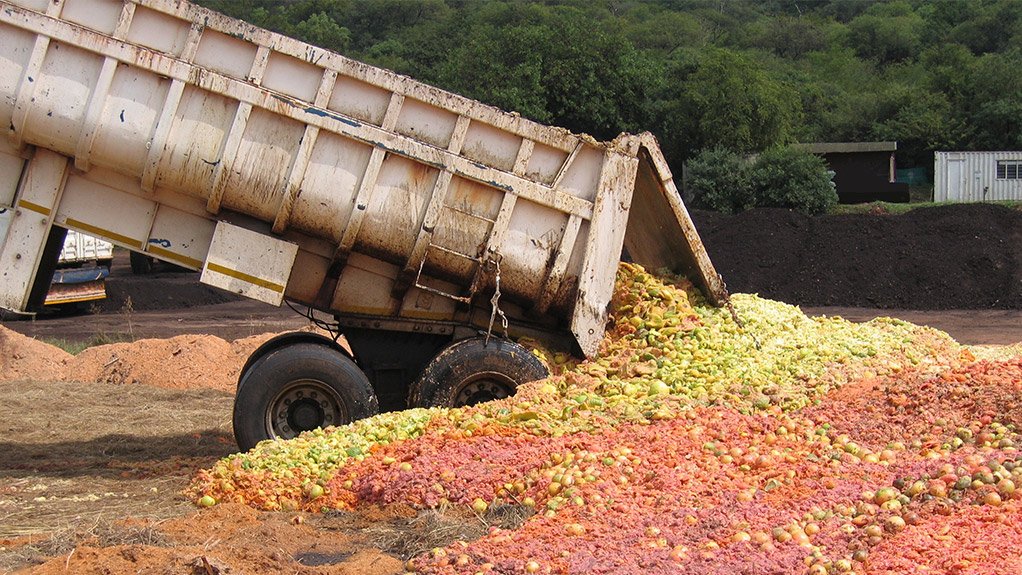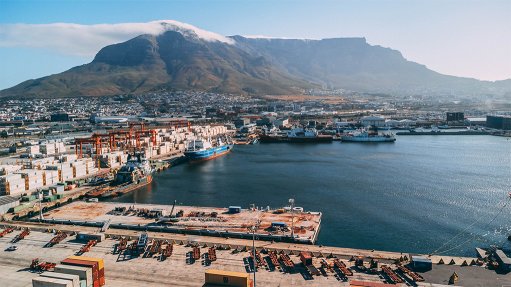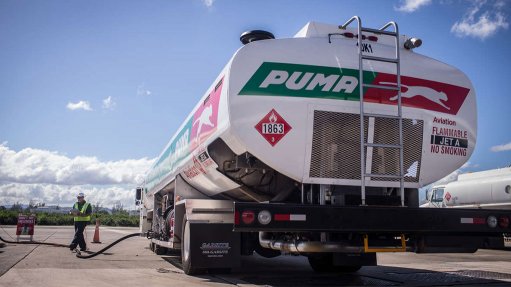Food waste costs SA R61.5-billion a year


FOOD WASTE FOCUS The Council for Scientific and Industrial Research began researching food waste last year and it is the first time that research of this nature has been undertaken in South Africa
Photo by Linda Godfrey
Food waste is a global and a local challenge, which costs South Africa R61.5-billion a year. Subsequently, South Africa-based scientific and tech- nology research, development and imple- mentation organisation the Council for Scientific and Industrial Research (CSIR) is undertaking research on food waste, its causes and impact on the South African economy.
“The CSIR began researching food waste last year and it is the first time that research of this nature has been undertaken in South Africa. The purpose of the research was to obtain an initial estimate of the magnitude of the problem of food waste in South Africa. A rand value in terms of percentage of gross domestic product (GDP) lost as a result of food waste was also attached,” says CSIR principal scientist for pollution and waste Dr Linda Godfrey.
“The research also investigated where along the value chain – harvesting, storage, processing, distribution, retailers and in kitchens of restaurants, hotels and households – the bulk of the waste is generated and which food waste types are most common,” she explains.
Godfrey adds that the research is in the initial stages and more quantitative data will be collected. Research will also investigate the issue from a resource economics perspective to determine the value loss to the economy.
A briefing note published by the CSIR in February, titled ‘The Magnitude and Cost of Food Waste in South Africa’, states: “Food waste consists of raw or cooked food materials and includes food waste before, during and after meal preparation in households, as well as losses in food manufacturing, and activities in the retail and food services sectors. The drivers of food waste include urbanisation and the contraction of agriculture markets, dietary transition and the increased globalisation of trade.”
The CSIR briefing note further states that more than nine-million tons, or 30%, of local agricultural production is wasted each year in South Africa. The cost to society associated with this waste is equivalent to 2.1% of the country’s GDP, with 70% of poor urban households in South Africa have limited access to food.
Several resources are wasted as a result of food wastage, such as water, packaging materials and energy. Further, food waste also impacts on food insecurity and environmental challenges.
The briefing note states that “on average, greenhouse-gas emissions across the food supply chain range from between 2.8 t and 4.14 t of carbon dioxide equivalent per ton of food”. In addition, food waste disposal at landfill sites poses a pollution threat to groundwater resources.
Further, food waste occurs at several points along the food supply chain and the most costly food waste takes place during food distribution, amounting to a R19.6-billion loss, followed by processing and packaging that account for a R15.6-billion loss and agricultural production, with a R12.5-billion loss.
Godfrey says food waste in the food supply chain is a result of factors such as inefficient handling, inappropriate cooling to preserve food, and the amount of time it takes to harvest or process food and transport it to store shelves, among others.
She believes that green technologies and systems should be investigated to reduce food waste along the value chain. “Hopefully, new technology developments will be able to reduce food waste and the costs involved in processing food.”
In households, causes of food waste vary, depending on “cultural practices, climate, diet and socioeconomic factors such as household size, household income and the frequency of eating out”, according to the briefing note.
The document also quantifies the cost of food waste among food commodities. Fruit and vegetable waste comes to R22.4-billion, meat waste R17.3-billion and fish and seafood R7.8-billion.
To address these losses, in the context of the need to make enough food available to a growing population amid apparent food insecurity, the briefing note highlights that the processing and packaging stage of the fruit and vegetable value chain should be targeted first, as 13% of the total cost of food waste in South Africa is incurred here.
The next areas of food waste that should be dealt with are the distribution stage of the food and vegetable value chain, as well as the agricultural production and distribution stages of the meat value chain.
“Finally, where food waste cannot be avoided, alternative end-of-life treatment technologies for this waste must be considered. Waste from food processing can be used as an input in the production of energy or compost and is also a source of valuable, functional compounds such as antioxidants.”
Godfrey notes that the CSIR intends to attract master’s and doctoral students to undertake more detailed research on the food waste problem.
CSIR principal scientist for waste and pollution Dr Suzan Oelofse is collaborating with scientists from the European Union, who will be in South Africa later this year to conduct a workshop on food waste. This international partnership will assist the CSIR in further understanding the chal- lenges of food waste, says Godfrey.
National Science Week
As part of the Department of Science and Technology’s (DST’s) national science week initiative, from July 27 to August 3, the CSIR invited several schools to participate in a science day on July 30 at its premises in Lynnwood, Pretoria.
The science day comprised several exhibitions, talks, demonstrations and shows on topics such as the importance of a green economy, aeronautics and emerging health technology, as well as recycling and food waste.
“The intention of the recycling and food waste exhibition was to highlight to schoolchildren how much waste – such as paper, plastic, glass, tin and food – is produced without us even knowing and to inform them about what can and cannot be recycled in South Africa,” explains Godfrey.
Also, the exhibition intended to inform children about the different ways of disposing of food waste, such as home composting, where organic waste, namely food, is collected in bins and used as compost for gardens.
Home composting is an important activity, as there are no municipal food waste recycling initiatives and organic waste is normally sent to landfill sites. Organic waste at landfill sites produces harmful methane gas and also pollutes groundwater, says Godfrey.
“South Africa only recycles about 10% of its total waste, according to the Department of Environmental Affairs 2011 baseline study, but it is suggested that the country could easily recycle 30% of its waste streams by weight. The DST believes that the South African waste sector can achieve a 20% reduction in industrial waste, and a 60% reduction in domestic waste to landfill by 2022 by intro- ducing technological and nontechnological innovations. This will be unpacked in the Waste Research, Development and Innova- tion roadmap currently under development by the DST,” concludes Godfrey.
Comments
Press Office
Announcements
What's On
Subscribe to improve your user experience...
Option 1 (equivalent of R125 a month):
Receive a weekly copy of Creamer Media's Engineering News & Mining Weekly magazine
(print copy for those in South Africa and e-magazine for those outside of South Africa)
Receive daily email newsletters
Access to full search results
Access archive of magazine back copies
Access to Projects in Progress
Access to ONE Research Report of your choice in PDF format
Option 2 (equivalent of R375 a month):
All benefits from Option 1
PLUS
Access to Creamer Media's Research Channel Africa for ALL Research Reports, in PDF format, on various industrial and mining sectors
including Electricity; Water; Energy Transition; Hydrogen; Roads, Rail and Ports; Coal; Gold; Platinum; Battery Metals; etc.
Already a subscriber?
Forgotten your password?
Receive weekly copy of Creamer Media's Engineering News & Mining Weekly magazine (print copy for those in South Africa and e-magazine for those outside of South Africa)
➕
Recieve daily email newsletters
➕
Access to full search results
➕
Access archive of magazine back copies
➕
Access to Projects in Progress
➕
Access to ONE Research Report of your choice in PDF format
RESEARCH CHANNEL AFRICA
R4500 (equivalent of R375 a month)
SUBSCRIBEAll benefits from Option 1
➕
Access to Creamer Media's Research Channel Africa for ALL Research Reports on various industrial and mining sectors, in PDF format, including on:
Electricity
➕
Water
➕
Energy Transition
➕
Hydrogen
➕
Roads, Rail and Ports
➕
Coal
➕
Gold
➕
Platinum
➕
Battery Metals
➕
etc.
Receive all benefits from Option 1 or Option 2 delivered to numerous people at your company
➕
Multiple User names and Passwords for simultaneous log-ins
➕
Intranet integration access to all in your organisation



















